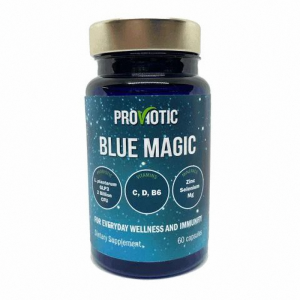Bulgaria is homeland of yogurt. It was there , the Bulgarian bacillus was discovered, which has unique properties. Bulgarian bacillus is an active producer of lactic acid,which, in turn, has a suppressive effect on pathogens, thus helping the body to more actively fight infections. At the same time it develops during fermentation a number of vitamins, amino acids, trace elements and biologically active substances.Many people ask if it is true that the famous Lactobacillus Bulgaricus bacterium is found only in Bulgaria. The correct answer is no – youcan grow the bacteria in different parts of the world (in fact many people do).
What is unique about the Bulgarian strain is that only in Bulgaria it preserves its qualities in further generations of the same strain,i.e. if you use your previous yogurt to start your new batch. If this is how you make your yogurt outside Bulgaria, you will notice that after a batch or two, the yogurt loses its unique taste, physical appearance and qualities. Why this happens, scientists are not sure.It is often contributed to the unique climate of the region butthere’s more to creating the perfect conditions for Lactobacillus Bulgaricus than the environment.
 Bulgarian white brined cheese (sirene) is a type of brined cheese made in the Balkans (South-Eastern Europe). It is made of goat’s milk, sheep milk, cow milk or a combination of milks.It is slightly crumbly with min. dry matter of about 46–48% and fat content in dry matter of about 44–48%. It is commonly produced in blocks, and has a slightly grainy texture. It is used as a table cheese, as well as in salads and in baking.
Bulgarian white brined cheese (sirene) is a type of brined cheese made in the Balkans (South-Eastern Europe). It is made of goat’s milk, sheep milk, cow milk or a combination of milks.It is slightly crumbly with min. dry matter of about 46–48% and fat content in dry matter of about 44–48%. It is commonly produced in blocks, and has a slightly grainy texture. It is used as a table cheese, as well as in salads and in baking.
In Bulgarian, the general term for any type of cheese is sirene, although this also refers more specifically to the brined cheese made in the region.
Cheese is rich in calories and physiological sufficiency coming from the high level of proteins and fats, from the presence of well absorbed by the human body peptides, free amino acids, vitamins and trace elements. The consumption of white brined cheese favours digestion and avoids growth of putrefactive bacteria in guts. Due to high level of calcium, it helps bones stability and protects from rachitis and osteoporosis.
 Kashkaval is a type of yellow cheese made of cow milk(kashkaval vitosha), sheep milk (kashkaval balkan), or both (kashkaval preslav) the term is often used to refer to all yellow cheeses (or even any cheese other than sirene). In English-language menus in Bulgaria, kashkaval is translated as “yellow cheese” (whereas sirene is usually translated as “white cheese” or simply “cheese”).
Kashkaval is a type of yellow cheese made of cow milk(kashkaval vitosha), sheep milk (kashkaval balkan), or both (kashkaval preslav) the term is often used to refer to all yellow cheeses (or even any cheese other than sirene). In English-language menus in Bulgaria, kashkaval is translated as “yellow cheese” (whereas sirene is usually translated as “white cheese” or simply “cheese”).
In Bulgaria, Kashkaval is made from cow’s milk and is known as Kashkaval “Vitosha” while a variation made from ewe’s milk is called Kashkaval “Balkan”. Kashkaval “Preslav” is the name given to the cheese made from a mixture of both milks.
Kashkaval is a traditional food used in most of the breakfast pastry and dishes containing kashkaval inside and on top. Like in the other Balkan countries, it is a major substitute for all other kinds of cheese, especially in pizzas.

















